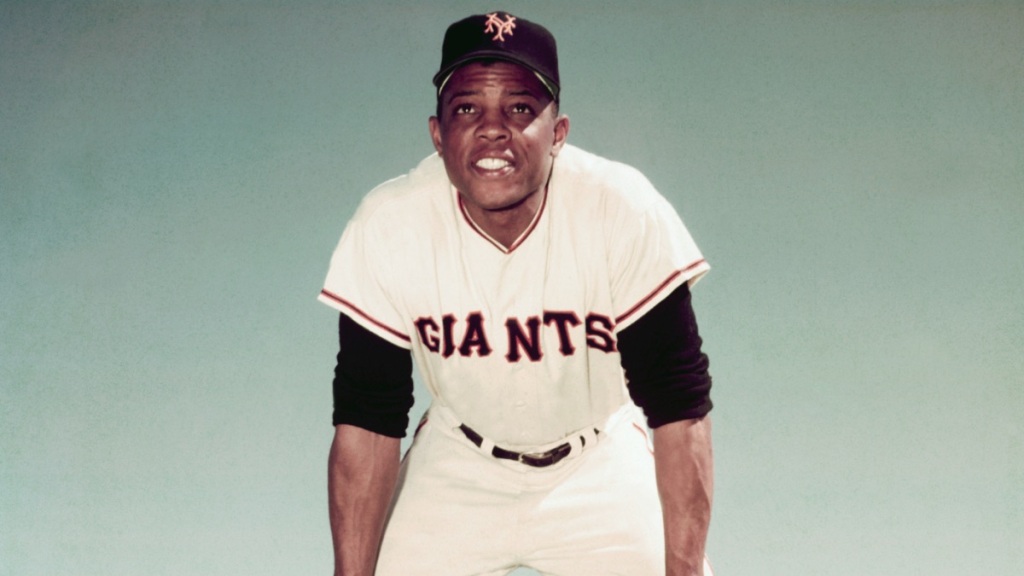
Juneteenth, the day we commemorate the emancipation of enslaved African Americans, holds profound significance in the journey toward equality and justice. This year, as we celebrate Juneteenth, we also mourn the passing and celebrate the life of an extraordinary individual, Willie Mays, who left an indelible mark both on and off the baseball field. There’s no coincidence when it comes to life. As Bob Costas aptly puts it, the extraordinary life of Willie Mays, who died on June 18th at the age of 93, provides us with a unique opportunity to be even more present in our reflections and celebrations on Juneteenth.
Willie Mays, the “Say Hey Kid,” was a beacon of hope and excellence, embodying the dreams and aspirations of many African Americans. Born in the small town of Birmingham, Alabama, his journey from the segregated South to the pinnacle of baseball greatness in New York City and San Francisco mirrors the broader narrative of Black resilience and achievement.
Growing up in Birmingham, Mays was often seen playing stickball in the streets, a simple game that symbolized community and joy. Even as a professional baseball player, Mays could be found playing stickball with the neighborhood children, sharing their smiles and laughter. It was in these streets that he honed his skills, playing alongside kids who looked like him and aspired to be like him. These informal games were more than just play; they were a testament to the power of dreams and the strength of community bonds. For those young boys and girls, seeing Mays play was a glimpse of what was possible, a reminder that they too could achieve greatness despite the odds.
My grandmother, now 100 years old, lived through an era where being Black was fraught with dangers and difficulties. Yet, she recalls the exhilaration and excitement of witnessing Willie Mays’ heyday. In her eyes, Mays represented not just a sports hero, but a symbol of hope and progress. The challenges he faced and overcame were a reflection of the broader struggles of the Black community, and his successes were shared and celebrated by all.
Juneteenth is a time to reflect on our ancestral history, to honor the struggles and triumphs that have shaped our path. The eradication of slavery allowed for the emergence of Black excellence in various fields, including sports. Willie Mays, with his multiple Golden Gloves, championships, and MVP awards, epitomizes this excellence. His on-field achievements are well-documented, but it is his off-field contributions that truly highlight his legacy.
Mays’ involvement in the community, his mentorship of young athletes, and his advocacy for social causes had a lasting impact. He understood the importance of giving back and used his platform to uplift others. This dual legacy of athletic prowess and community service is what we should focus on during Juneteenth – understanding our past and using it to create the future we deserve.
The streets, where Mays played stickball, were once the epicenter of life for many Black communities. They were places of learning, sharing, and growing. Today, we can draw inspiration from this, recognizing the importance of community engagement and the need to create spaces where dreams can flourish. The healthy, engaged, and invested lives of the past can guide us as we build a better future.
Reflecting on Willie Mays’ life, we see a man who was more than an athlete. He was a role model, a mentor, and a beacon of hope. His life story, from Alabama to the West Coast, is a testament to the power of resilience and determination. His interactions with fans, particularly the young ones, left a lasting impression. The joy and inspiration he brought to them are part of his enduring legacy.
As we celebrate Juneteenth, we must remember the lessons of the past. The struggles for freedom and equality did not end with emancipation; they continue today. By honoring the legacy of individuals like Willie Mays, we acknowledge the progress made and the work still to be done. His life reminds us that excellence is not just about personal achievements but also about uplifting others and contributing to the community.
In my conversations with my grandmother, I’m reminded of the rich history and cultural heritage that we must preserve and celebrate. Her memories of Willie Mays and other icons of her time provide a window into a world that was both challenging and exhilarating. These stories are a crucial part of our collective memory, and they inspire us to strive for a future where everyone can achieve their full potential.
In conclusion, this Juneteenth, let us celebrate the life and legacy of Willie Mays, the “Say Hey Kid.” His extraordinary journey from the streets of Birmingham to the heights of baseball glory is a powerful reminder of what is possible when dreams are nurtured and communities are strong.
Let us honor our past, reflect on the progress we’ve made, and commit to creating a future where the opportunities and achievements of individuals like Willie Mays are the norm, not the exception. This shared space of reflection and celebration is where we can draw strength and inspiration, knowing that our history is a testament to our resilience and our future is bright with the promise of what we can achieve together.
